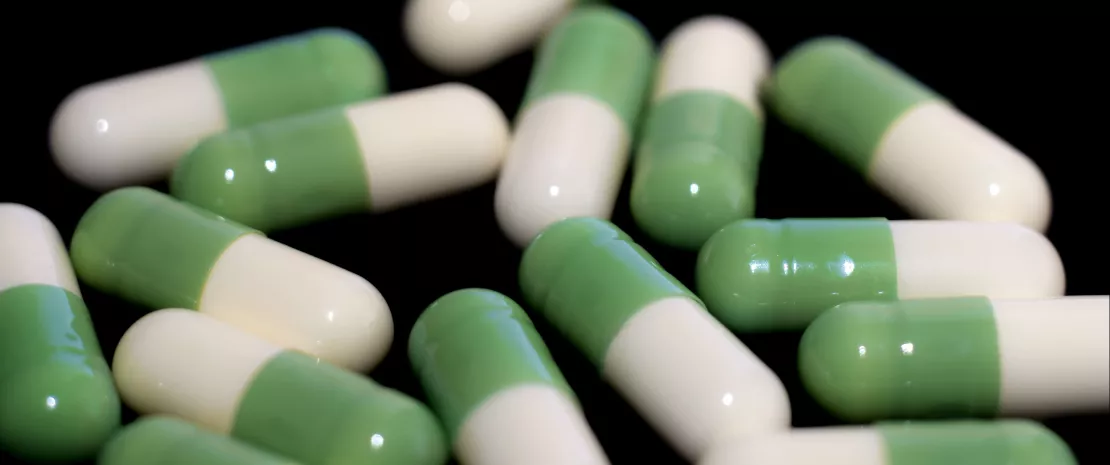Gut microbiota thought to block the effects of antidepressants
Stress-related intestinal dysbiosis may be involved in the development of depressive disorders. Such dysbioses may also limit the effectiveness of a family of antidepressants via alterations of the serotonergic pathway.
Lay public section
Find here your dedicated section
Sources
This article is based on scientific information

About this article
Current treatments for major depressive disorders, such as fluoxetine, a selective serotonin reuptake inhibitor, are only partly effective. Although the gut microbiota, which is sensitive to chronic stress, represents a therapeutic target for the treatment of depression, no study had evaluated whether it can affect the efficacy of antidepressants, until recently. This gap has now been filled thanks to the work of a French research team. Their goal was to evaluate whether an intestinal dysbiosis induced by chronic stress can induce metabolic changes that impact emotional behavior and responses to serotonergic drugs.
Transferring depression via fecal transplants
To find out whether depression is transmissible, the researchers transplanted the (imbalanced) gut microbiota of a mouse suffering from moderate chronic stress into healthy recipient mice previously treated with antibiotics. In doing so, they transferred most of the elements responsible for the mouse’s dysbiosis. Among the recipients, depressive-like behavior was observed, with a reduction in neurogenesis in the hippocampus and in serotonin levels (in the latter case, limitation of its synthesis and reuptake, and stimulation of its degradation). This process seems to involve tryptophan (a dietary amino acid that is a precursor to serotonin, the metabolism of which may be altered by dysbiosis), since lower levels of this compound were noted in the recipients’ serum. Lastly, the disturbances described were exacerbated by the transplant, with the recipient mice more affected than the donors, a discrepancy which may be explained by the decrease of a bacterial cluster in connection with lower tryptophan levels.
Resistance to antidepressants
Another notable effect of the fecal transplant was the altered antidepressant and neurogenic effects of fluoxetine in the recipient mice (but not in the donors). The antidepressant did not increase levels of serotonin in the hippocampus, failing to restore normal levels of neurotransmitter synthesis, reuptake, or degradation. However, treatment with an immediate serotonin precursor (5-HTP1, a hydroxylated tryptophan derivative) did restore serotonin levels in the hippocampus, improve neurogenesis and relieve depression.
A mechanism, a therapy, and a biomarker
Intestinal dysbioses may therefore explain the development of certain forms of depression and the lack of efficacy of fluoxetine (via alterations of the serotonergic pathway in the metabolism of tryptophan). According to the authors, modulating the microorganisms involved in the catabolism of tryptophan represents a potential therapeutic strategy. At the same time, the levels of tryptophan in the plasma may guide therapeutic choices by acting as a biomarker. Nevertheless, these results still require validation in humans.






